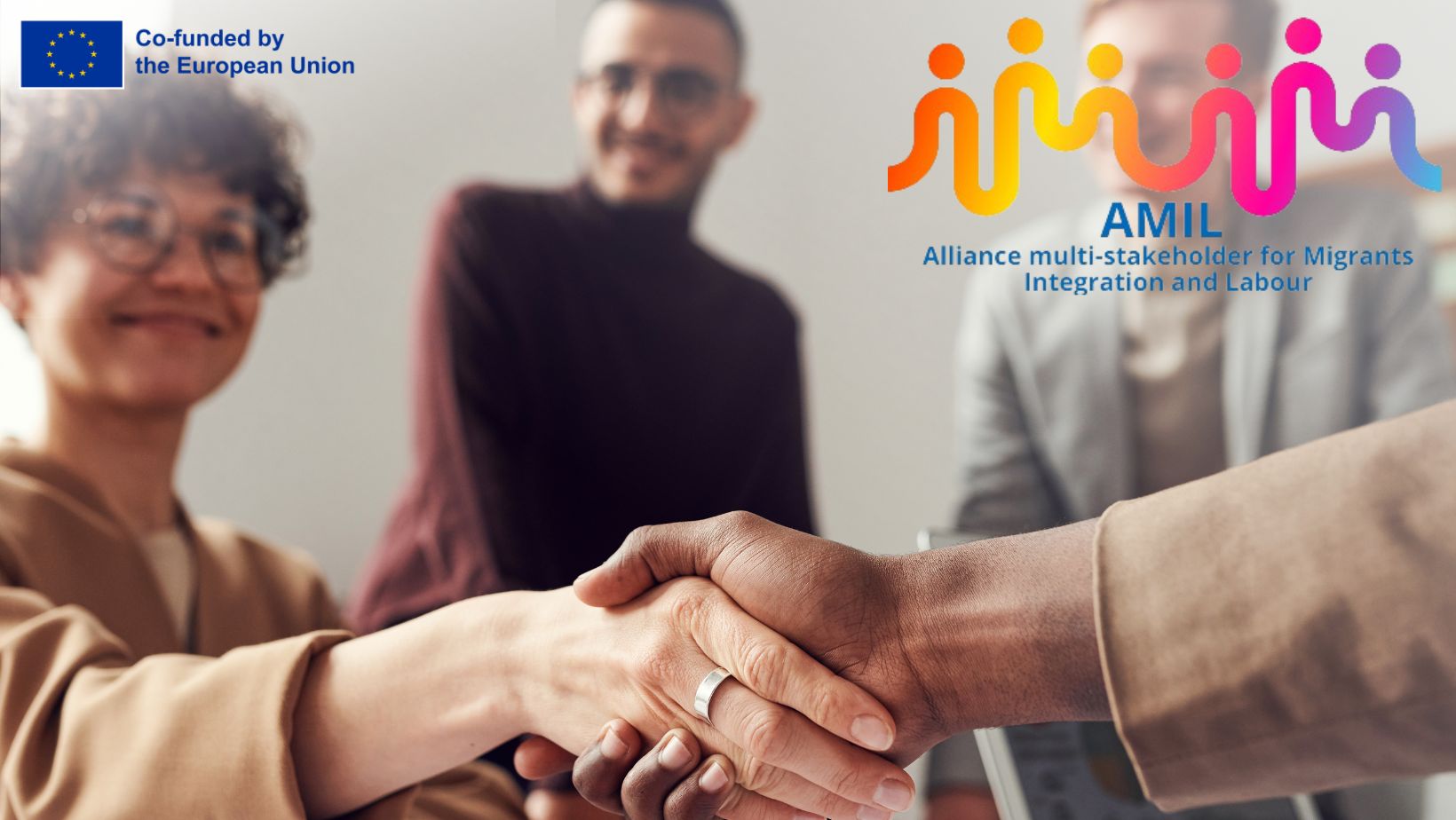The AMIL project continues its journey alongside social workers engaged in job orientation for third-country nationals.
Professor Francesco Carchedi, together with other trainers who led the training sessions, is supporting professionals in the initial phase of developing a practical and innovative toolkit designed for those working in employment services for migrants.
The creation of the toolkit does not start from scratch: the materials already produced are being enriched and integrated with insights that emerged during classroom training activities, with the experiences collected in pilot projects, and through an international questionnaire that also involved partners from Greece and Cyprus.
The design process also benefits from the contribution of Dr Cristina Di Pietro, university lecturer in Migration Phenomena and Multicultural Society, whose input complements that of Professor Folco Cimagalli and Professor Carchedi himself. Thanks to the direct involvement of social workers, the toolkit will be easy to consult and immediate to use, becoming a truly operational tool.
The project also foresees that the toolkit will be translated into several European languages to ensure its accessibility in different national contexts. Among the sections currently under development are those dedicated to identifying the needs of third-country nationals and to activating networks of services and opportunities across territories.
Through this work, AMIL strengthens its mission: to build concrete tools to improve the labour and social inclusion of migrants, promoting a collaborative and international approach.
AMIL – Alliance Multi-stakeholders for Migrants Integration and Labour is a project that aims to contribute to the sustainable integration of third-country nationals into the labour market by promoting, extending, and strengthening the MEIC (Migrants Economic Integration Cluster) methodology. This innovative approach, based on cooperation among different stakeholders, enables migrants to be directly involved in the integration process through tailored and personalised orientation and training programmes.
👉 To learn more about the AMIL project, click HERE
